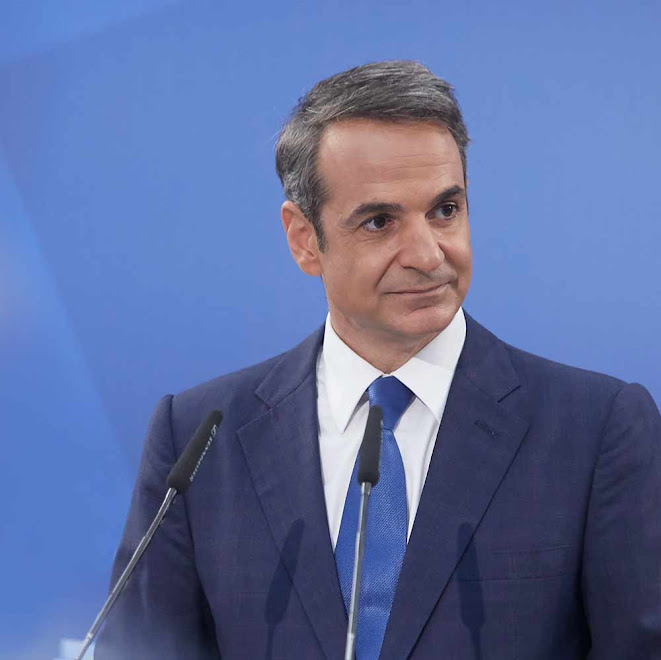|
WE, the African, Caribbean and Pacific Group of States (ACP) and the European Union (EU), taking into consideration our ACP-EU Partnership Agreement:
REAFFIRM that the 2030 Agenda is an ambitious and transformative plan of action to eradicate poverty and achieve sustainable development in its economic, social and environmental dimensions providing a pathway towards a more sustainable future.
With the underlying “leaving no-one behind” principle, the Sustainable Development Goals (SDGs) are universal and indivisible with a clear commitment to future generations. At a time, when the multilateral system is continuously put to the test, we underscore the need to be UNITED in our determination to WORK TOGETHER including through our ACP-EU partnership for the successful implementation of the SDGs by 2030.
Recognising the linkages between sustainable development and climate action we REITERATE our strong commitment to implement the Paris Agreement on Climate Change fully and effectively. The implementation of the SDGs and the objectives of the Paris Agreement will underpin our partnership.
Emphasise that bold decisions are warranted for the achievement of the SDGs. We intend to INTENSIFY our efforts to accelerate progress towards the achievement of the SDGs and stand ready to work together in supporting countries to INTEGRATE SDGs in their national policy, including financing strategies, and reporting frameworks at various levels.
UNDERSCORE the importance that the 2030 Agenda is nationally driven and that the primary responsibility for its implementation lies with each country, in collaboration with relevant stakeholders at the local, national, regional and international levels, including inter alia, civil society, international organisations and the private sector.
Reiterate our shared commitment to MOBILISE in line with the Addis Ababa Action Agenda a full range of means of implementation in the spirit of partnership; in this regard RECOGNISE the importance of domestic resource mobilisation, development finance, development effectiveness and of strengthening existing partnerships such as North-South cooperation, South-South and triangular cooperation including multi-stakeholder partnerships, for the effective implementation of the 2030 Agenda and the Paris Agreement. The establishment of new multi-stakeholder partnerships including public-private partnerships is key for diversifying and transforming the economies of ACP countries and EU Member States.
In implementing the 2030 Agenda we will be GUIDED BY and PROMOTE our common principles and core values, including democratic principles, rule of law, good governance, respect for human rights, equal access to justice for all, gender equality, women empowerment and solidarity as well as our strong commitment to the rules-based global order with multilateralism and the United Nations at its core.
RECOGNISE that it is essential to ACCELERATE action and to fully IMPLEMENT the 2030 Agenda and the Paris Agreement. Our collective action can make a real difference in addressing our common challenges and advancing mutual benefits.
WE OWE A SUSTAINABLE WORLD TO OUR FUTURE GENERATIONS.
|
|
Speech by President Donald Tusk at the UN Climate Action Summit
|
|
|
Europe is determined to lead the fight against today's climate threat. That is why the European Union is more resolved than ever to implement the Paris Agreement fully and effectively.
The EU has already exceeded its emission reduction target for 2020, and will surpass its target for 2030. Instead of the foreseen 40%, we expect a reduction in greenhouse gas emissions of around 45%, as compared to 1990 levels. Turning our targets into concrete action is what matters, and this is what the EU is doing.
Our economies need massive investment to become climate neutral. Therefore, at least 25% of the EU's next long-term budget will be dedicated to climate-related activities. And we are also taking concrete action to bring in private capital. In the coming weeks, the EU, in partnership with like-minded countries worldwide, will launch the "International Platform on Sustainable Finance". This will help private investors to identify and take advantage of the green investment opportunities across the globe.
The EU's emissions make up only around 9% of the global total. With this in mind, the EU is strengthening cooperation with all partner countries. As the world's biggest climate finance donor, the EU together with its Member States are providing over 40% of public climate finance worldwide. These contributions have more than doubled since 2013, exceeding 20 billion euros per year. And we will scale up our support even further, including through the European Investment Bank, which is the European Union’s financial arm. The European Council has made it clear that it expects the EIB to increase its ambition to deliver on climate action and environmental sustainability, within the EU but also in supporting our climate objectives globally.
Looking ahead, we know that Europe must go further and faster. The President-elect of the European Commission will present a European Green Deal in her first one hundred days in office. She has also suggested the strengthening of the EU's emission reduction target for 2030 to 50% or even 55% in a responsible way.
Early next year, the European Union will submit an ambitious long-term strategy to our international partners. I am convinced that Europe will win the race to become the world's first climate-neutral continent. The EU objective of climate neutrality by 2050 has already been endorsed by a large majority of our Member States. And personally, I would say that it is just a matter of little time before all EU countries subscribe to it. Thank you.
|
|
Speech by President Donald Tusk at the meeting on the action for the Amazon
|
|
|
Burning forests are a tragedy no matter where they happen and no matter their scale. A tree needs many years to grow, but only few minutes to burn. We seem to know this, but we needed a shock, the shock of the Amazon rain forest fires to awaken ourselves from our lethargy. Europe is deeply moved by the magnitude of this calamity and its global and long-term consequences. We do not want to lecture anyone, we have no right to do so, as our own history is to a large extent a history of deforestation for land use and industry. But this is why we feel even more co-responsible for saving forests - on our continent and all around the world. We want to help everyone who is ready to save forests, because those who save forests save humankind. Today even the children have understood better than the adults that our planet without forests will become a desert planet, and that the burning forests are not only a matter for environmental activists, but they have become an issue evoking emotions of millions of ordinary Europeans.
That is why I am here as a representative of the European Union to thank all the initiators of the Alliance for rainforest, in particular for the region of Amazonia. To thank for stepping up the fight in defence of your forests. Because these are your forests, which doesn’t release anybody from the obligation to help you. And Europe wants to help. Some EU member states have already submitted their plans. Allow me to share with you the information concerning the intentions of the European Union and its institutions.
Ongoing and planned EU development programmes related to forests and land use in the Amazon basin amount to more than 190 million euros. In addition, the EU will continue providing financial support for disaster preparedness to several Amazon countries, including through an additional 6.5 million euros in 2020.
The EU stands ready to deploy missions under the Union Civil Protection Mechanism that can provide training to the emergency services in an affected country. Upon the request by the Bolivian government, for example, firefighting experts have recently been deployed to Bolivia. Moreover, the Copernicus satellite emergency system can provide maps of specific affected sites. It was activated in August to help respond to this year’s terrible fires. And this is just the beginning of our engagement, I can promise you that.
| Council of the European Union | |
|
|
|
Sustainable finance: Council agrees position on a unified EU classification system
|
|
|
The EU is taking steps to implement its strategy on financing sustainable growth and the transition to a low-carbon, resource-efficient economy.
EU ambassadors today greenlighted the Council's position on a proposal to create an EU-wide classification system, or "taxonomy", which will provide businesses and investors with a common language to identify what economic activities can be considered environmentally sustainable.
"Private sector participation is absolutely crucial in addressing the challenges posed by climate change. Hundreds of billions euros of investment are required to achieve the transition to a sustainable economy and it is clear the capital needed cannot come from public budgets alone. In order to help investors contribute to the transition, a first important step is to have a shared understanding of what "sustainable" means."
Mika Lintilä, minister of finance of Finland
At present, there is no common classification system at EU or global level which defines what is an environmentally sustainable economic activity. The proposed regulation is meant to address two challenges:
- reduce fragmentation resulting from market-based initiatives and national practices;
- reduce "greenwashing", i.e. the practice of marketing financial products as "green" or "sustainable", when in fact they do not meet basic environmental standards.
As set out in the Council position, the proposal identifies and defines six EU environmental objectives:
1) climate change mitigation;
2) climate change adaptation;
3) sustainable use and protection of water and marine resources;
4) transition to a circular economy, including waste prevention and recycling;
5) pollution prevention and control; and
6) protection and restoration of biodiversity and ecosystems.
In order to qualify as environmentally sustainable, economic activities would have to fulfil the following requirements:
- contribute substantively to at least one of the six environmental objectives listed above.
- not significantly harm any of the environmental objectives;
- be carried out in compliance with minimum social and governance safeguards;
- comply with specific technical screening criteria.
On this basis, the Commission would then be tasked to establish the actual classification by defining "technical screening criteria" for each relevant environmental objective. Legally, the criteria would take the form of delegated acts as regards the sector classification of economic activities. They would be supplemented by implementing acts defining quantitative and qualitative thresholds which must be met by the economic activity in order to be considered environmentally sustainable.
The Commission would be assisted by a technical expert group, the "Platform on sustainable finance", which would be mandated to provide advice for developing the technical screening criteria and analyse their impact in terms of potential costs and benefits of their application. In addition, the Commission will be advised by an expert group consisting of experts from member states on the appropriateness of the technical screening criteria.
According to the Council position, the taxonomy should be established by the end of 2021, in order to ensure its full application by end of 2022.
Next steps:
The European Parliament voted on its position on this file in March 2019. Negotiations between the Council and the Parliament are therefore ready to start.
|
|
|
|
















